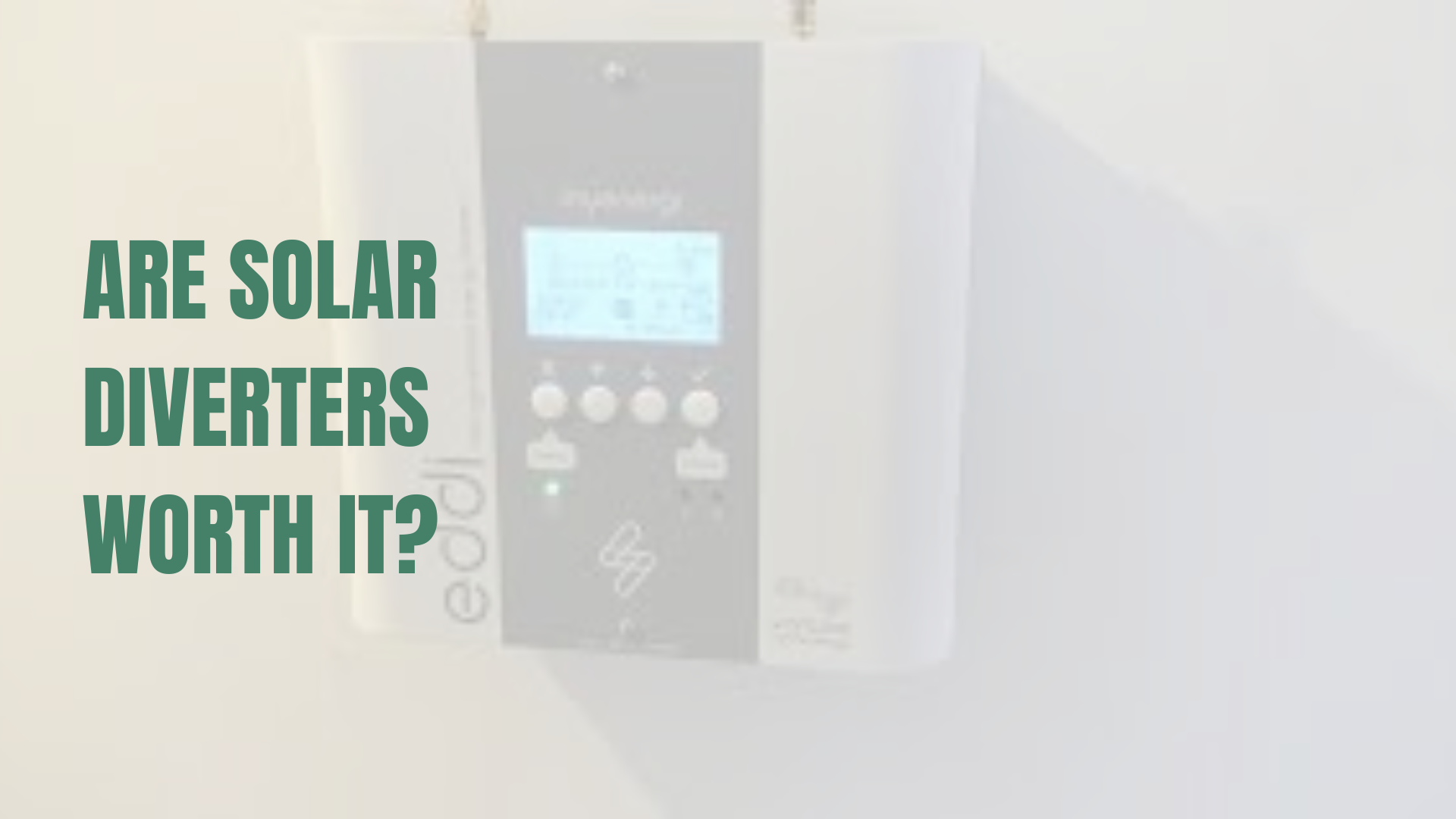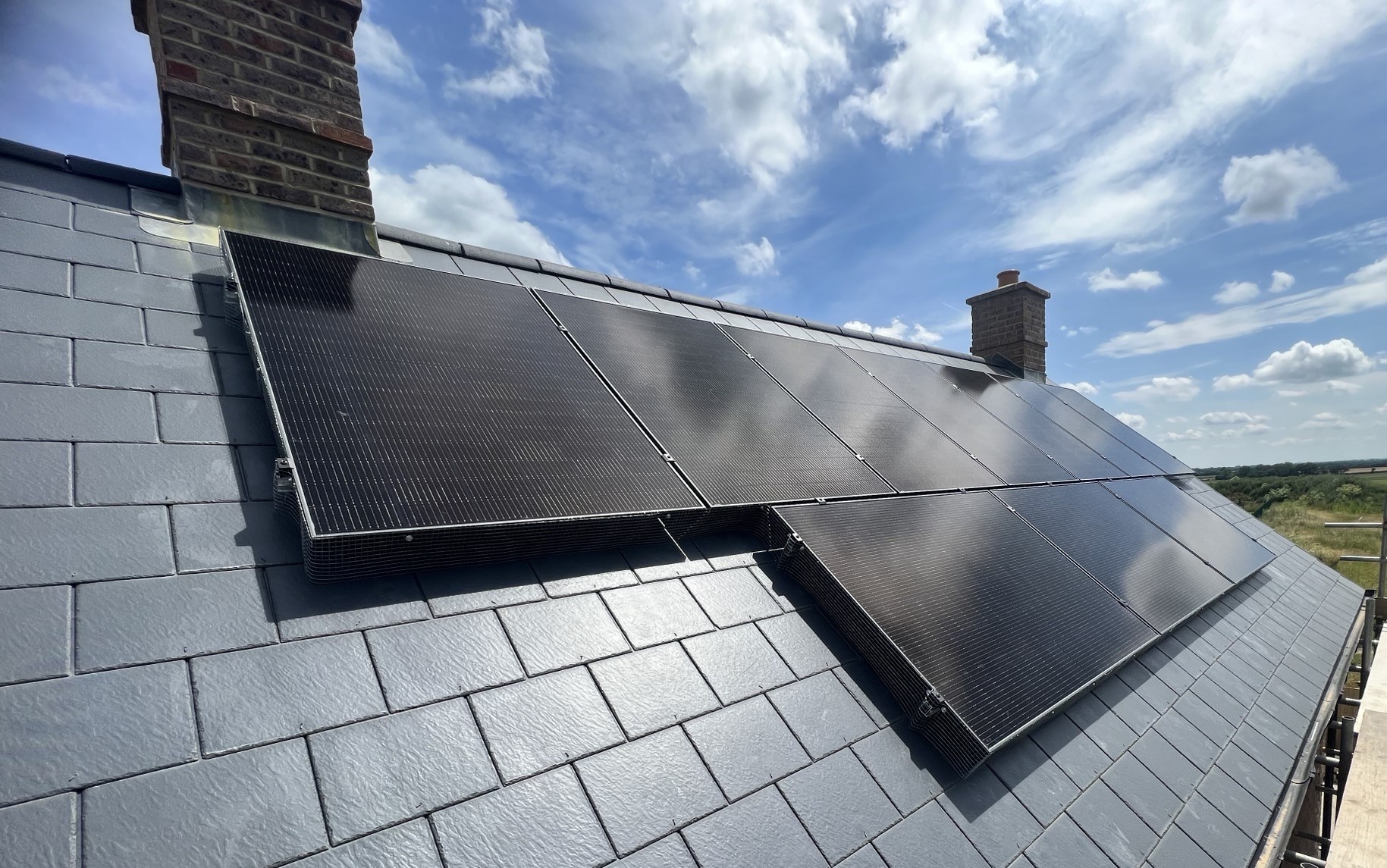If you already have solar panels or are looking into having solar panels installed and want to know the best ways to optimise your savings, a solar diverter can help you make the most of your free electricity your solar panels generate. Instead of sending surplus energy back to the grid, a solar diverter redirects it to power your home’s appliances, most commonly your hot water immersion heater.
This article will look at the ways a solar diverter can maximise your solar savings and power your hot water.
What is a Solar Diverter and How Does it Work?
A solar diverter monitors your home’s energy use and detects when your panels are producing more electricity that you’re consuming. When that happens, it will automatically send the surplus electricity to a specific appliance – usually your immersion heater, an electric heater or an EV charger.
Using more of your own clean, green, free electricity you’re generating reduces your reliance on the grid and can lower your bills even further – saving you more money.
How Much Does a Solar Diverter Cost?
Solar diverters typically cost between £300 and £500, plus installation. Installation should always be carried out by a qualified solar installer to ensure safety and building regulations are complied with. The three main trusted solar diverters on the market are the Solar iBoost, MyEnergi Eddi and the SolarEdge diverter.
When Will it Pay for Itself?
Most homeowners will see a return on investment on a solar diverter within two years, depending on how much surplus energy they generate and use. Savings can vary, your energy tariff, how much electricity you self-consume and how much hot water you use can all affect how quickly you see a return on investment.
Do Solar Diverters Need Maintenance?
Solar diverters are generally low maintenance, only requiring occasional checks for dust and debris and to ensure firmware is up to date.
Pros and Cons of Solar Diverters
Advantages
- Uses more of your solar power so reduces your energy bills further
- Lowers your carbon footprint by using renewable energy to heat your hot water
- Doesn’t affect your Feed-in Tariff (FiT) if you have one
- Minimal maintenance required
Disadvantages
- Additional upfront cost and installation required
- Not compatible with homes using combi boilers for hot water
- May not offer strong financial returns
- Lifespan of around 10 years
Are Solar Diverters Worth It?
For homeowner with existing solar panel systems on the original Feed-in Tariff, a solar diverter is almost always worth the additional investment. You’ll be receiving the same tariff payments while saving even more on your energy bills, by reducing your import further.
If your solar panel system is newer or you are yet to install, your export rate and household energy use will determine whether a solar diverter is worth it or not. If your export rate is below 12p per kWh and you use a lot of hot water, a diverter is likely to be beneficial for your household. If you have a higher export rate (12p per kWh or above) it may make more sense to export your excess energy instead, especially if saving money if your goal. If you want to reduce your carbon footprint and move away from fossil fuels, then using your excess solar electricity to heat your hot water will remain beneficial.
Final Thoughts from SolarTherm UK
A solar diverter is a smart, energy efficient add on that can help you get the most from your solar panels. If you are using a lot of hot water and are on the Feed-in Tariff the benefits of a solar diverter are more pronounced, but that doesn’t mean if you have only recently installed your solar panels or are yet to install, you can’t maximise your savings with a solar diverter.
At SolarTherm UK we supply and install the highest quality solar panel systems and accessories, designed to maximise your self-consumption and cut your bills. We’ll go through every option with you and help you make an informed decision on whether installing a solar diverter will be beneficial for you and your property.
Contact SolarTherm UK today for a free no obligation quote and design, tailored to your property, usage and future energy needs. No hard sell, just honest, expert advice.
Your home. Your energy. Your future.





